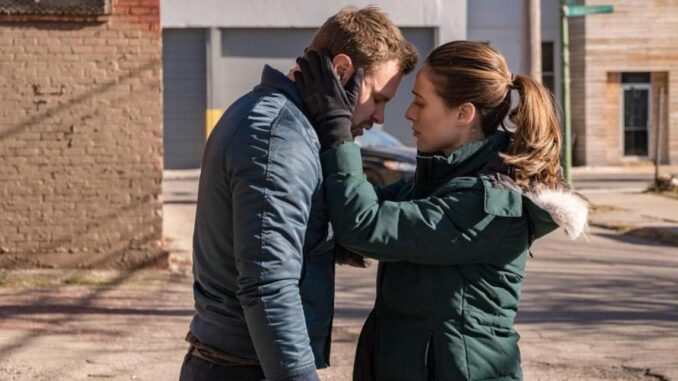
The Unflinching Gaze: When Nobody's Thriving in District 21
The sirens wail, a familiar, mournful dirge echoing through the concrete canyons of Chicago. For over a decade, fans of Chicago P.D. have ridden shotgun with the Intelligence Unit, witnessing their triumphs, their failures, and the relentless toll their chosen profession extracts. Now, as the specter of Season 13 looms, a single, stark declaration from the showrunner cuts through the procedural noise like a razor wire: "Nobody's Thriving." This isn't just a plot spoiler; it's a profound artistic statement, an unflinching commitment to realism that promises a season where the very definition of success is shattered, and the human spirit is tested not by victory, but by sheer, grinding endurance.
To truly understand the weight of "Nobody's Thriving," one must first acknowledge the delicate ecosystem of hope and despair that has always defined District 21. For years, viewers have clung to fleeting moments of personal happiness for their beloved characters – a promotion, a stable relationship, a glimmer of peace after a harrowing case. These were the oases in a desert of moral ambiguity and violence. The showrunner's revelation, however, suggests that even these oases have dried up. It’s an admission that the relentless tide of trauma, the constant immersion in the city’s underbelly, and the impossible choices demanded by the badge have finally eroded the very possibility of true flourishing. "Thriving," in this context, extends beyond career advancement or domestic bliss; it encompasses mental well-being, moral clarity, and the simple capacity for unburdened joy. To declare its absence for everyone is to paint a canvas of collective exhaustion.
Consider the individual members of the Intelligence Unit, each already carrying the weight of seasons past. Hank Voight, the moral compass whose needle spins wildly between justice and vengeance, has long since sacrificed his personal peace for the sake of his unit and his city. For him, "nobody's thriving" is less a revelation and more a deepening of his existential burden. What does a man who lives in the shadows have left to lose, or to gain, if not even the faintest flicker of hope remains for his charges? His journey will likely become a poignant exploration of how one leads when the destination is not progress, but merely sustained survival.
Then there are the younger officers, those who once held more tangible aspirations. Kim Burgess, perpetually navigating the jagged landscape of grief and resilience, has endured more personal loss and trauma than most could bear. Her path has been a constant struggle for equilibrium. If she is not thriving, it suggests that her hard-won peace is again shattered, or perhaps, was never truly attained. Her journey becomes a mirror to the quiet despair of those who persevere not out of hope, but out of a sheer, instinctual will to keep putting one foot in front of the other. The same applies to Adam Ruzek, whose impulsiveness has often been tempered by a burgeoning maturity. Without the prospect of thriving, his growth may cease to be an upward trajectory and instead become a battle against stagnation, a fight to prevent a regression into old, self-destructive patterns.
This declaration by the showrunner is more than just a narrative arc; it's a profound social commentary. Chicago P.D. has always prided itself on its gritty realism, a counterpoint to more sanitized portrayals of law enforcement. By confirming that its characters are not thriving, the show elevates its commitment to illustrating the psychological cost of the job. It reflects the real-world struggles of first responders – the burnout, the PTSD, the strained relationships, the moral compromises that chip away at the soul. It forces viewers to confront the uncomfortable truth that heroism often comes at a devastating personal price, and that the "happy ending" so prevalent in fiction is often an elusive fantasy in the lives of those who protect and serve.
For the audience, this bleak prognosis paradoxically strengthens the show's appeal. In a world saturated with escapist fantasies, there is a compelling, almost cathartic power in witnessing genuine struggle. When the showrunner admits "nobody's thriving," it’s an invitation to lean into the discomfort, to engage with the raw, unvarnished humanity of these characters. It fosters a deeper empathy, stripping away the idealized veneer of heroism to reveal the vulnerable, fractured individuals underneath. We don't watch them to see them win, but to see how they endure, how they continue to function, how they find purpose in the absence of flourishing.
As Season 13 approaches, the wail of the sirens will carry a heavier resonance. It will not be a call to action for characters destined for triumph, but a somber reminder of a world where the fight itself is the only constant. The showrunner’s statement is an audacious promise: no easy answers, no convenient resolutions, just the relentless, unflinching gaze upon men and women who continue to stand on the thin blue line, not because they are thriving, but because someone has to. Their struggle, then, becomes our own, a poignant illustration of the human spirit's capacity to survive even when the possibility of genuine flourishing has been stripped away. In the barren landscape of "nobody's thriving," the true test of their character, and of the show's enduring power, will be found in their refusal to simply give up.
